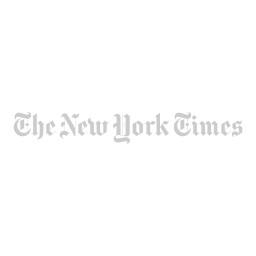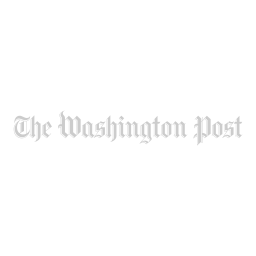Your options, in plain language.
Photo by Cameron Clark
A Splendid Note from Liene:
I’ve been fortunate to have worked with wedding pros from 94 countries over my career and I’ve heard from a ton of them this past month – all with similar questions, stories of lost business, uncertainties of what to say to clients who are completely stressed.
We’re all in this together. If you have questions on Coronavirus and your wedding business, feel free to email me at hello@thinksplendid.com.
I’ll be sharing my answers here on the Think Splendid blog so that everyone can benefit. I’ll also keep your name anonymous. Totally free, no strings attached – I truly do not care if you never hire me.
You can read the previous Q+As on Coronavirus and your wedding business here.
Focus on the Splendid
We're an industry that makes our living by celebrating life's milestones, so I'm going to start each of these update posts with a few positive COVID-19 things we can all smile about:
Total Global Recoveries
The number of global recoveries is now more than 212,000 people, up from 195,500 yesterday.
#SewTOGETHER
If you want to do something that makes a tangible, positive difference, luxury shoe brand Tieks has started the #SewTOGETHER movement to make masks for healthcare workers. They are giving a $50 Tieks Gift Card to anyone who stitches and donates 25 masks, or a $100 Tieks Gift Card for 50 or more masks. You can find patterns and tutorials here.
Treatment DEVELOPMENT PROGRESS
If getting into the granular details helps you manage your stress and calm anxiety, Stanford University’s Coronavirus Antiviral Research Database tracks the clinical treatment studies being conducted and is updated frequently.
The U.S. CARES Act and Your Wedding Business
Earlier this week we talked about a realistic timeline for recovery and how it is highly likely we are still going to be dealing with this come Summer.
While it’s impossible to forecast a date this will all be over, it IS possible to use the facts we have to rule out certain timelines.
Since Tuesday morning, we have two more major facts to take into account when considering which of our clients’ events may realistically need to be postponed:
Wimbledon – scheduled to be held from the end of June through the first two weeks of July – has been canceled for the first time since World War II.
The city of Toronto has banned all public events through June 30th.
While completely necessary, these extended stay home mandates and event bans are causing an increased burden on the small businesses that make up the majority of the wedding and event industry, where gathering people together in public spaces is literally what we do for a living.
If you are in need of an influx of cash to keep your business afloat during the mandated event bans, a business loan provided under the CARES Act might be a solution worth exploring.
Under the Coronavirus Aid, Relief, and Economic Security (CARES) Act, American companies may be eligible for relief funding. The funding is being provided through the Small Business Administration in the form of two types of loans: the Economic Injury Disaster Loan (EIDL) and the Paycheck Protection Program (PPP) Loan.
Congress has earmarked $349 billion for PPP loans and $10 billion to expand the already existing EIDL program. The Treasury Department is advising business owners interested in taking advantage of these loans “to apply as quickly as you can because there is a funding cap.”
Unfortunately, "clarifications" to the legislation’s rules keep getting announced. While I’ve done a deep dive into the legislation and updates from the Treasury Department to ensure that what I’m sharing is as accurate as possible, it may very well change. Take this as a guideline and jumping off point for your own research.
In addition, since minority-owned businesses in the United States statistically face more challenges in accessing funding, Munaluchi Bride hosted a fireside chat with SBA National Franchise Relationship Manager, Richard Snow, with insights specific to the experience of minority entrepreneurs. You can watch a replay of this webinar for free here.
While considering your options, it’s also important to remember that these loans are meant to help keep you afloat when event cancellations result in lost income. They will not fix pre-existing flaws in your business model.
Whatever issues you had before Coronavirus with infrastructure, pricing, sales, or a lack of true understanding of your target market ("luxury brides" is not a target market) will still be there and will make it more difficult for you to generate enough income to both cover your expenses and pay back the loans on time.
I strongly encourage you to use some of this time to take a hard look at any issues in your business that you've been pushing to the back burner or overlooking out of ego:
Does your marketing focus on potential brides and grooms or does it center you as the star?
Do you have an actual marketing strategy or do you just post on Instagram and hope the hashtags you choose will be enough?
Is your sales process cohesive or do you just email an ugly Word document and refuse to ever talk on the phone?
Does your pricing strategy make sense for you or did you just copy what you think others are charging?
Since you’ll have to sell more than you did before in order to generate enough money to pay the loans back while paying your ongoing normal bills, you’ll also want to look at how you can increase capacity and refine your workflow to handle the additional volume of work without adding to your overhead costs.
Take the time to review and update your contracts so that they are legally sound, especially clauses related to payment schedules, refund liability, and force majeure.* COVID-19 is NOT considered an act of God, it is considered an act of man. If your attorney doesn’t understand this, get a different attorney.
Any funding assistance you receive right now might help your business, but it will not fix your business.
Debt can sometimes be a useful tool, but it is not a silver bullet solution. You can easily find yourself in an even worse position by taking on these loans if you don’t have a strong enough foundation or solid plan in place to repay them.
Here’s an at-a-glance rundown of the two loan options provided by the CARES Act:
Economic Injury Disaster Loan (EIDL)
NUMBERS TO KNOW
Loan Amount: Up to $2 million, based on amount of economic injury
Interest Rate:
3.75% for businesses
2.75% for nonprofits
Application Deadline: December 31, 2020
First Repayment Due: 12 months after loan approval
Final Repayment Due: Up to 30 years after loan approval (specific terms on application)
WHO THIS LOAN IS FOR
Your company must be headquartered in the United States or in a US Territory. Some of the eligible companies include:
Sole proprietors, with or without employees
Independent contractors
Self-Employed Individuals
A business with up to 500 employees
A private non-profit with tax exempt 501(c)/(d)/(e) status
HOW THE MONEY CAN BE SPENT
This loan can be used to pay for (some) normal operating expenses that you're unable to now pay because of COVID-19. Some of the eligible operating expenses include:
Payroll Employee Compensation: salaries, commissions, wages normally paid as tips, etc
Health Benefits: paid sick, medical, or family leave
Other payroll expenses: retirement benefits, payroll taxes, etc
Accounts Payable (suppliers & vendors you owe)
Increased supply chain expenses (to cover higher freight costs, etc)
Lease or mortgage payments
Regular debt payments
Working capital used to continue business operations
HOW THE MONEY CANNOT BE SPENT
You cannot use money from the EIDL loan to refinance debt incurred prior to COVID-19
If you already have a Paycheck Protection Program (PPP) loan, you cannot use this loan to pay for the same expenses.
An example: if you use PPP loan money to cover payroll for the month of April, you cannot also spend EIDL loan money on April’s payroll.You cannot use the money to pay dividends
PROS
You can request an emergency advance of up to $10,000, disbursed within 3 days of a successful SBA application.
Repayment of the $10k emergency advance can be forgiven if you spend it on payroll, paid leave, lease or mortgage payments, supply chain disruption costs, or repaying existing debt that cannot be met because of lost revenues
The normal requirement of proof that you aren't eligible for other loans has been removed for COVID-19
The first payment is usually not due for 12 months
There is no fee for paying off the loan early
You can refinance an EIDL loan into a PPP loan for forgiveness purposes
Normally EIDL qualification requires relevant tax documents, but the CARES Act is allowing loan approval based on alternative sources of reliable information, including relying solely on a credit score
CONS
Interest starts accruing the moment the loan is approved, even though your first payment is not due for 12 months
Business owners have to personally guarantee any loan over $200,000 in case they are unable to repay it
You are not eligible for loan forgiveness if you have already laid off or furloughed employees, or reduced salaries
Loan approval can take up to 3 weeks. Once approved, funds are disbursed within 5 days of the loan closing
If the application is approved, you may need to hire an attorney to help you prepare the closing documents
INFORMATION TO HAVE READY BEFORE YOU APPLY
Your Employer Identification Number (EIN)
Gross revenues for 12 months prior to January 31, 2020
Cost of goods sold for 12 months prior to January 31, 2020
Lost rents due to COVID-19 on residential and commercial rental properties, if applicable
Other COVID-19 related compensation you have received, if applicable
Date the business was established and the date you began ownership of the company
Personal information for all owners (including social security numbers) and ownership percentage numbers
Your bank name, account number, and routing number
If applying for a loan of $200,000 or more, you’ll need a list of all personal assets for each company owner including any real estate properties, stocks and investments, etc.
Proof of compliance with Occupational Safety and Health Act (OSHA) regulations (This is not required up front, but they may ask for it before approving the loan. In the wedding industry, this will apply more to bridal salons, retail brick-and-mortar storefronts, venues, catering facilities and prep kitchens, rental/floral/event design companies with warehouses or production space, etc. You can read updated OSHA guidance for COVID-19 here.)
APPLICATION PROCESS
Application Deadline: December 31, 2020
Estimated time to complete this application is 2 hours and 10 minutes.
Paycheck Protection Program (PPP)
NUMBERS TO KNOW
Loan Amount:
The maximum loan amount you can receive is whichever number is lower:
$10 million
2.5 x your average total monthly payroll for 2019 + any pre-existing EIDL loan you want to refinance (here’s a free spreadsheet to help you calculate this)
Interest Rate: 1% fixed
Application Deadline: June 30, 2020
First Repayment Due Date: 6 months after loan approval
Final Repayment Due Date: 2 years after loan approval
WHO THIS LOAN IS FOR
Your company must be headquartered in the United States or in a US Territory. Some of the eligible companies include:
Sole Proprietors, with or without employees
Independent Contractors
Self-Employed Individuals
Companies with less than 500 employees
Small businesses in the hospitality and food industry (such as hotels and restaurants) with more than one location, if their individual locations employ less than 500 workers
Owners of franchises listed in the SBA Franchise Directory. (In the wedding industry this includes Bella Bridesmaids, Fabulous Frocks, Lovely Bride, President Tuxedo, etc)
HOW THE MONEY CAN BE SPENT
Money from a PPP loan can ONLY be used to pay for costs related to employees and operational costs such as:
Employee Compensation: salaries, commissions, wages normally paid as tips, etc
Employee Benefits: paid sick, medical, parental, family, and vacation leave
An exception to this: any sick and family leave wages that qualify for a tax credit under the Families First Coronavirus Response Act (FFCRA) cannot be paid with PPP loan money.Interest on mortgage payments
Rent payments on leases active prior to February 15, 2020
Utility payments on services active prior to February 15, 2020
Insurance Premiums
Interest on debt incurred prior to February 15, 2020
You will be required to track all spending and provide documentation for every dollar of the full loan amount in order to request loan forgiveness.
HOW THE MONEY CANNOT BE SPENT
Any sick and family leave wages that qualify for a tax credit under the Families First Coronavirus Response Act (FFCRA) cannot be paid with PPP loan money.
No more than 25% of the amount forgiven can be spent on non-payroll costs
If you already have an Economic Injury Disaster Loan (EIDL), you cannot use this loan to pay for the same expenses.
An example: if you use EIDL loan money to cover payroll for the month of April, you cannot also spend PPP loan money on April’s payroll.You cannot spend PPP loan money on marketing, advertising, business development, sales, or any other business growth initiatives (exhibiting at bridal shows, attending industry conferences or masterminds, taking educational online courses, hiring business consultants, retaining a PR firm, etc)
You will be required to track all spending and provide documentation for every dollar of the full loan amount in order to request loan forgiveness.
PROS
You are eligible for loan forgiveness for certain spending during the first 8 weeks after receiving the loan. Costs include: payroll, rent or mortgage payments, utilities
If you rehire any laid-off employees once you obtain the loan, you will not be penalized for having a reduced payroll.
The first payment is usually not due for 6 months
There is no fee for paying off the loan early
No requirement for a personal guarantee (the EIDL requires business owners to personally guarantee loans over $200,000)
The normal requirement of proof that you aren't eligible for other loans has been removed for COVID-19
CONS
No more than 25% of the amount forgiven can be spent on non-payroll costs
Wages and salary for each employee is capped at $100,000, including benefits.
An example: if you have an employee who usually makes $150,000 a year, you can only pay them up to $100,000 including benefit costs using the money from this loan.Independent contractors cannot be paid with money from this loan. They have to apply for their own loan funding.
If you layoff employees or reduce salaries of employees who made less than $100,000 in 2019 by more than 25% within the first 8 weeks after receiving the loan, the amount of loan forgiveness you’re eligible for will be reduced in proportion to the number of employees laid off.
They are loaning businesses this money to protect jobs. They do not want you to get the loan money and then cut costs by laying off your staff.The PPP loan is guaranteed by the government at 100% only until December 31, 2020.
After that, loans under $150,000 will be covered at 85% and loans over $150,000 will be covered at 75%.
Whether or not owners will be personally responsible for the 15-25% after December 31 still remains to be clarified by the government.If you have outstanding commercial loans, your eligibility may be impacted
If you receive forgiveness for the PPP loan, you are not eligible for the payroll tax deferral benefit
An added issue for companies with investors: If you have an investor who owns more than 50% of your business or controls more than 50% of voting rights, the total number of employees who work at the other companies they invest in may count toward your 500 employee limit.
APPLICATION PROCESS
Dates to Know:
Application Deadline: June 30, 2020
Applications for small businesses and sole proprietorships open: April 3, 2020
Applications for independent contractors and self-employed individuals open: April 10, 2020
The PPP loan uses the SBA 7(a) loan application process which is not as simple as the online process for the EIDL.
You will need to download and fill out the Paycheck Protection Program application form.
The loan applications are processed through SBA approved financial institutions.
Check with your business bank to see if they are participating. Many banks are prioritizing helping their existing customers get PPP loans first.
You can use the SBA Lender Match Tool to help you find an eligible lender.
The application to receive forgiveness on your PPP loan is also processed through your lender as they will have to certify that you used the loan money correctly.
Keep track of how you spent every single dollar so you can provide documentation
Keep every single receipt
You can use this free spreadsheet to determine your eligible forgiveness amount.
More questions?
When I say we’re all in this together, I mean we are all in this together. I am not a blogger, I am a business consultant and speaker. This blog is not sponsored nor ad supported and is not how I make my income. Since we are all in this together, I am not charging consulting fees to answer questions related to COVID-19.
I will continue answering Coronavirus-related wedding business questions from ANY wedding, event, or hospitality professional, located anywhere in the world, here on the blog over the next few weeks and possibly longer, so that anyone, anywhere in the world can access the information they may need for their business at any time.
I’ll be continuing to work through the questions sent in so far here on the blog so that we can all navigate this together as best we can. Please send any questions you have to hello@thinksplendid.com and remember there is no such thing as a dumb question.
I’ll be keeping the names anonymous so you don’t have to worry about being attached to a question in a Google search or in case you don’t want a colleague or competitor to know what’s on your mind.
*This is not legal advice and should not be construed as such. Remember that laws and regulations vary by city/county/state/province/country. Please check with your own attorney for legal advice on your specific situation
Written by
LIENE STEVENS
Liene Stevens, the founder and CEO of Think Splendid, is an author, speaker, and award-winning business strategist. Armed with $2000, a healthy work ethic, and an undeserved dose of privilege, Liene bootstrapped Think Splendid from a scribble in a notebook to a successful wedding business consulting firm with a client list spanning 94 countries.

















